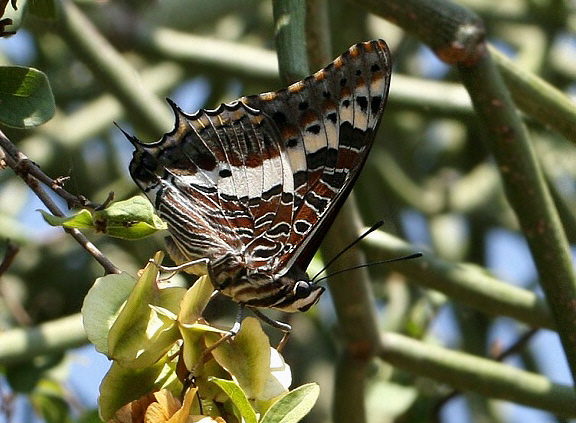
Introduction
The Charaxinae are a group of robust, medium to large Nymphalids characterised by having a rapid and powerful flight, stout bodies, falcate apexes, and a habit of feeding at dung and carrion. They are represented in the neotropics by genera including Consul, Memphis, Prepona and Agrias; in the Oriental and Australian regions by Polyura and Charaxes, and in Africa by Charaxes, Euxanthe and Palla.
There are 179 Charaxes species in the Afrotropical region, one of which – jasius, extends its range as far north as the Mediterranean coast of Europe. Most are forest-dwellers but several are adapted to savannah and arid Acacia thorn scrub habitats.
Most Charaxes species are black on the upperside, with bands of either white, orange or blue. The bands in some species are very broad, while in others they are narrow and broken into a series of small spots. Many Charaxes species have a pair of thin tails at the tornus of the hindwings.
Charaxes hansalii is found in southern Arabia; and in eastern Africa from s.e. Egypt and Ethiopia to northern Tanzania.
Habitats
This species inhabits dry savannah, thorn scrub, steppe and semi-desert environments, at altitudes between sea level and at least 2000m.
Lifecycle
The larval foodplants are Salvadora, Dobera ( Salvadoraceae ), Osyris & Colpoon ( Santalaceae ).
Adult behaviour
Males have been observed hill-topping more than 1000m above their breeding sites, and females are known to travel long distances from their emergence sites ( Larsen ). This migratory behaviour allows the species to survive the droughts which can temporarily eliminate their larval foodplants.
